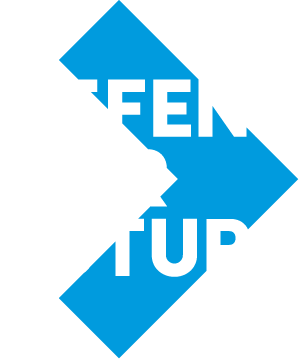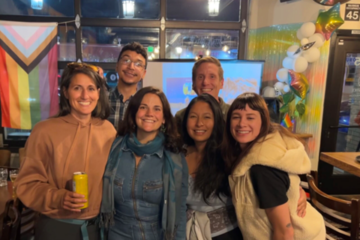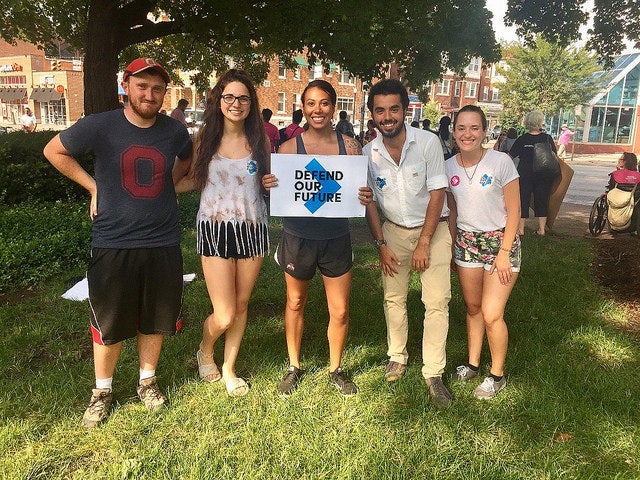Climate change affects us all and poses a severe threat to our collective future. However, social inequities to do with race, gender, and income can greatly impact the degree to which it affects us as individuals, leading to communities of color and women facing disproportionate impacts. These factors are key to determining our climate resilience, i.e. our capacity to protect ourselves, absorb stresses and bounce back from climate impacts and disaster events.
As we celebrate Women’s History Month and the inspiring women who are leading the climate fight around the world, it is important to acknowledge the disproportionate challenges that women and girls across the globe continue to face — especially when it comes to climate change.
Women and Climate – The Challenges
Societal norms and pervasive gender inequities limit women’s capacity to fight climate change and protect themselves against its worst impacts. The challenges are further exacerbated by their race, income, literacy and access to resources.
As per the findings of research conducted by the United Nations, women are 4% more likely to live in extreme poverty than men globally. This gap is as wide as 22% for the age group 25 to 34, women’s prime working and reproductive years. The women from poor households in certain developing regions are up to 22 times less likely to attend school, and are subject to harsh domestic conditions. Another study highlights that the global labor force participation rate for women is about 49% as opposed to 75% for men – a difference of 26 percentage points. For certain regions this gap is over 50 percentage points.
Here in the United States, the gender gap persists as well. The intersection of gender and race means the most severe impacts fall on women of color. For example, data shows that while women typically face wage gaps across the board, that gap is much wider for women of color as compared to white women. Overall, women in the US are paid 82 cents for every dollar paid to men, where Black women, Native American women and Latinas are paid 63, 60 and 55 cents respectively for every dollar paid to white, non-Hispanic men.
These data points highlight the gender disparities that continue to exist at home and around the globe, the worst impacts of which are felt in the developing regions.
These inequities are further exposed and reinforced whenever communities are hit by a crisis, such as the ongoing pandemic, or a climate-related disaster. Worldwide, most communities consider women as the primary caregivers in their households and are often burdened with added responsibilities that take a toll on their wellbeing. These are added stressors that exacerbate the impacts in case of climate-related disaster events. A report by Oxfam points out that as an aftermath of hurricane Maria the women in Puerto Rico faced substantially disproportionate impacts, particularly in the rural areas. The disruption of clean water supply and power affected the physical and mental health of men and women differently as the women struggled to manage the household needs.
Such research from around the world shows that gender disparities and intersecting socioeconomic vulnerabilities limit the climate resilience of women. As a result, they are hit the hardest in case of disaster events and disproportionately affected by climate change.
An Equitable Future
While we still have a long journey ahead to achieve equality within our society, it is true that we have indeed been moving in the right direction to reduce these gaps. Women around the globe have emerged as leaders and are changing the gender dynamics within their communities. Their contributions have been transformative in providing a gendered lens to the climate solutions. It is critical to take inspiration from them and empower women to fight climate change as equal partners in society.
Across the globe, women — particularly young women — are leading the fight for bold climate action, advocating for a more just future in which everyone can thrive. As we all raise our voices for the climate, we must stand with, lift up, and support our sisters in the fight.
“…Climate change is the single greatest challenge of our time,
Of this, you’re certainly aware.
It’s saddening, but I cannot spare you
From knowing an inconvenient fact, because
It’s getting the facts straight that gets us to act and not to wait.
So I tell you this not to scare you,
But to prepare you, to dare you
To dream a different reality,
Where despite disparities
We all care to protect this world,
This riddled blue marble, this little true marvel
To muster the verve and the nerve
To see how we can serve
Our planet. You don’t need to be a politician
To make it your mission to conserve, to protect,
To preserve that one and only home
That is ours,
To use your unique power
To give next generations the planet they deserve.
We are demonstrating, creating, advocating
We heed this inconvenient truth, because we need to be anything but lenient
With the future of our youth…”
Excerpt from Earthrise, a poem by Amanda Gorman




